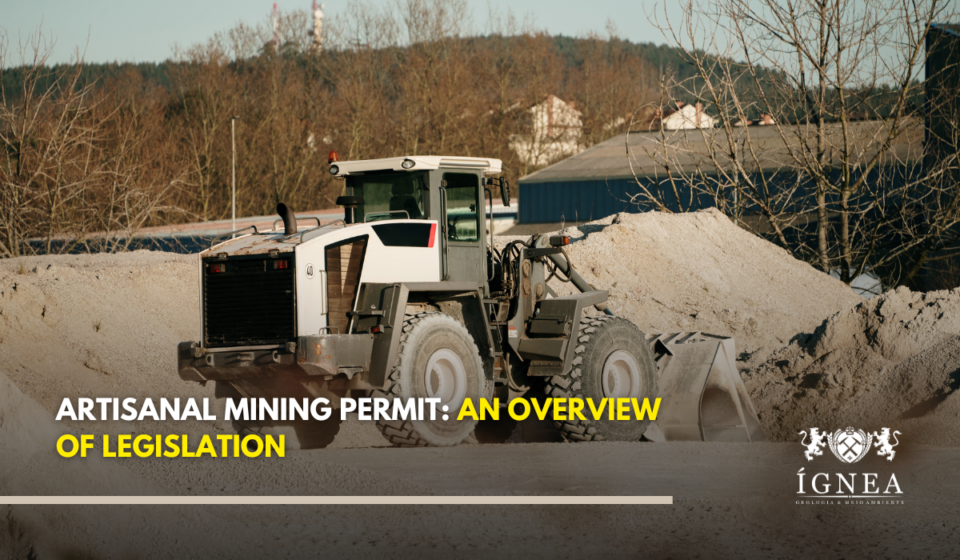The Artisanal Mining Permit (PLG) is a specific mineral exploitation regime, intended for smaller deposits and mineral substances considered suitable for artisanal mining. This regime, established to simplify access and exploration of these resources, has its own regulations, with the aim of promoting artisanal mining activity in an organized and sustainable manner.
Legal Framework
- Mining Code (Decree-Law No. 227/1967): Establishes the basis for the administration of mineral resources in the country.
- Law No. 7,805/1989: Established the PLG regime, abolishing the old registration regime and defining the conditions for artisanal mining activity.
- Law No. 11,685/2008 (Artisanal Miner Statute): Regulates the rights and duties of artisanal miners, addressing the forms of work and forms of organization.
- Decree No. 9,406/2018 (Mining Code Regulation): Regulates the Mining Code and other laws, detailing the procedures for granting PLGs and other mining activities.
- ANM Resolution No. 103/2022: Regulates the National Registry of the First Purchaser of mineral goods from the Artisanal Mining Permit Regime.
What is Artisanal Mining
According to Law No. 7,805/1989, artisanal mining is the activity of exploiting artisanal mining substances in areas established for this purpose. This activity is carried out by Brazilians or artisanal miner cooperatives, under the PLG regime.
Artisanal Mining Substances
Mineral substances considered suitable for artisanal mining include:
- Gold, diamond, cassiterite, columbite, tantalite and wolframite (in alluvial, eluvial and colluvial forms).
- Scheelite, other gemstones, rutile, quartz, beryl, muscovite, spodumene, lepidolite, feldspar, mica.
- Other minerals that may be indicated by the former DNPM and currently ANM.
Requirements for Permission
- Granting by ANM: The PLG is granted by the National Mining Agency (ANM), after a qualification process.
- Environmental Licensing: It is necessary to obtain prior environmental licensing from the competent body.
- Holders: The PLG is granted to Brazilians, individually or in cooperatives of artisanal miners.
- Area: The permit area may not exceed 50 hectares, except when granted to cooperatives.
- Term: The permit has a term of up to five years, renewable successively, at the discretion of the ANM.
- Personality and Transferability: The title is personal and, with the ANM’s approval, it can be transferred to those who meet the legal requirements.
Priority for Cooperatives
Artisanal miner cooperatives have priority for obtaining the PLG in areas where they operate, especially if:
- The areas are considered free.
- There were previous requests up to July 20, 1989.
- Cooperatives are PLG holders.
Obligations of the Permittee
- Start mining operations within 90 days of the publication of the title.
- Extract only the mineral substances indicated in the title.
- Notify the ANM of the discovery of other mineral substances.
- Carry out the work in compliance with technical and environmental standards.
- Make mining work compatible with environmental protection.
- Do not suspend work for more than 120 days, except for justified reasons.
- Submit information on production and marketing to the ANM annually.
- Be liable for damages caused to third parties.
First Purchaser Registry
ANM Resolution No. 103/2022 established the National Registry of the First Purchaser, in which every buyer of minerals from PLG must register in advance. This measure aims to improve control over marketing and tax collection.
Inspection
The ANM is responsible for inspecting artisanal mining activities, ensuring compliance with legal and regulatory standards. Failure to comply with obligations subjects the permittee to sanctions, such as warnings, fines and cancellation of the permit.
Conclusion
The Artisanal Mining Permit is a legal instrument that seeks to regulate artisanal mining activity, promoting its development and guaranteeing the sustainable exploitation of mineral resources. At the same time, it protects the environment and promotes the safety of operations, contributing to more responsible and organized mining.














